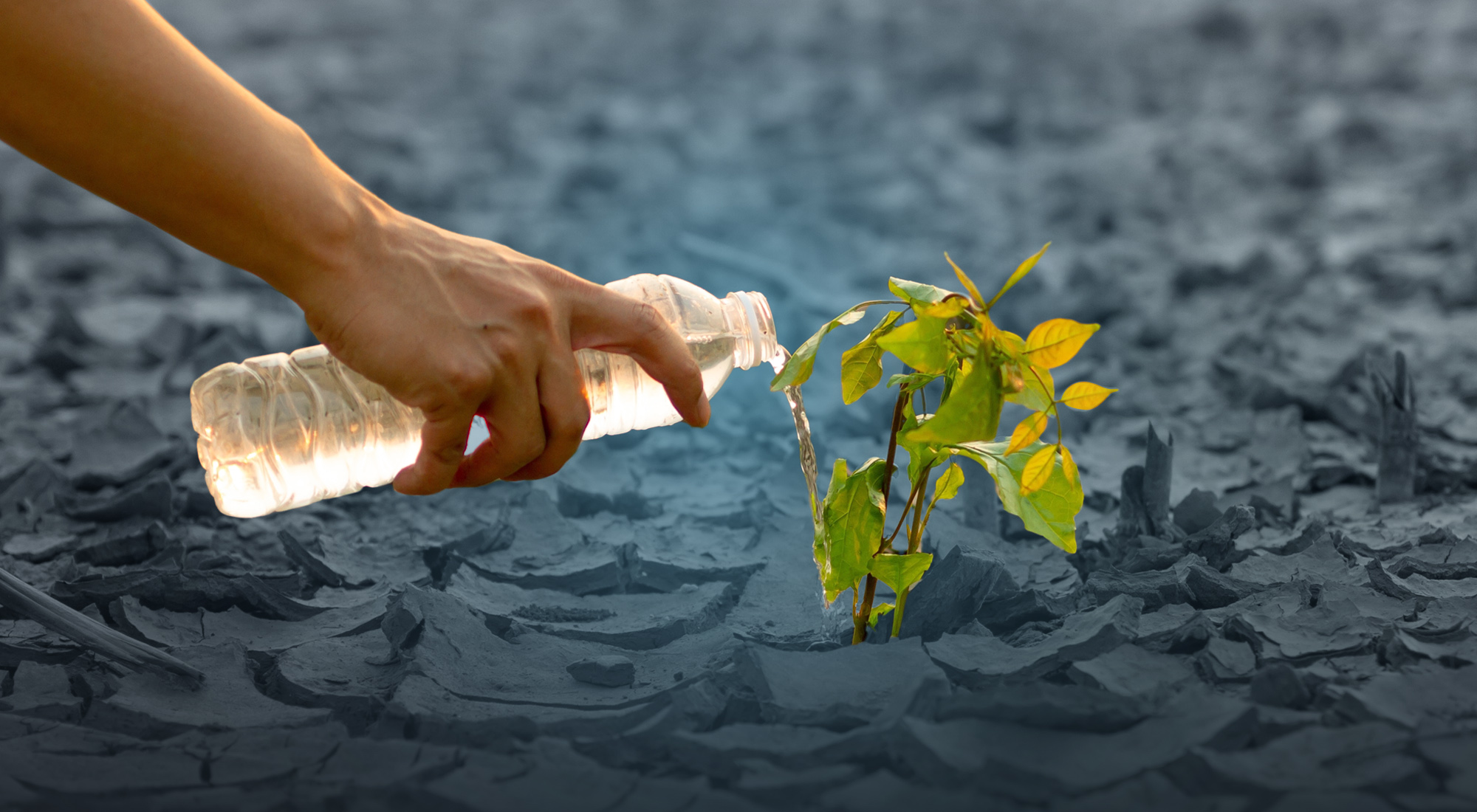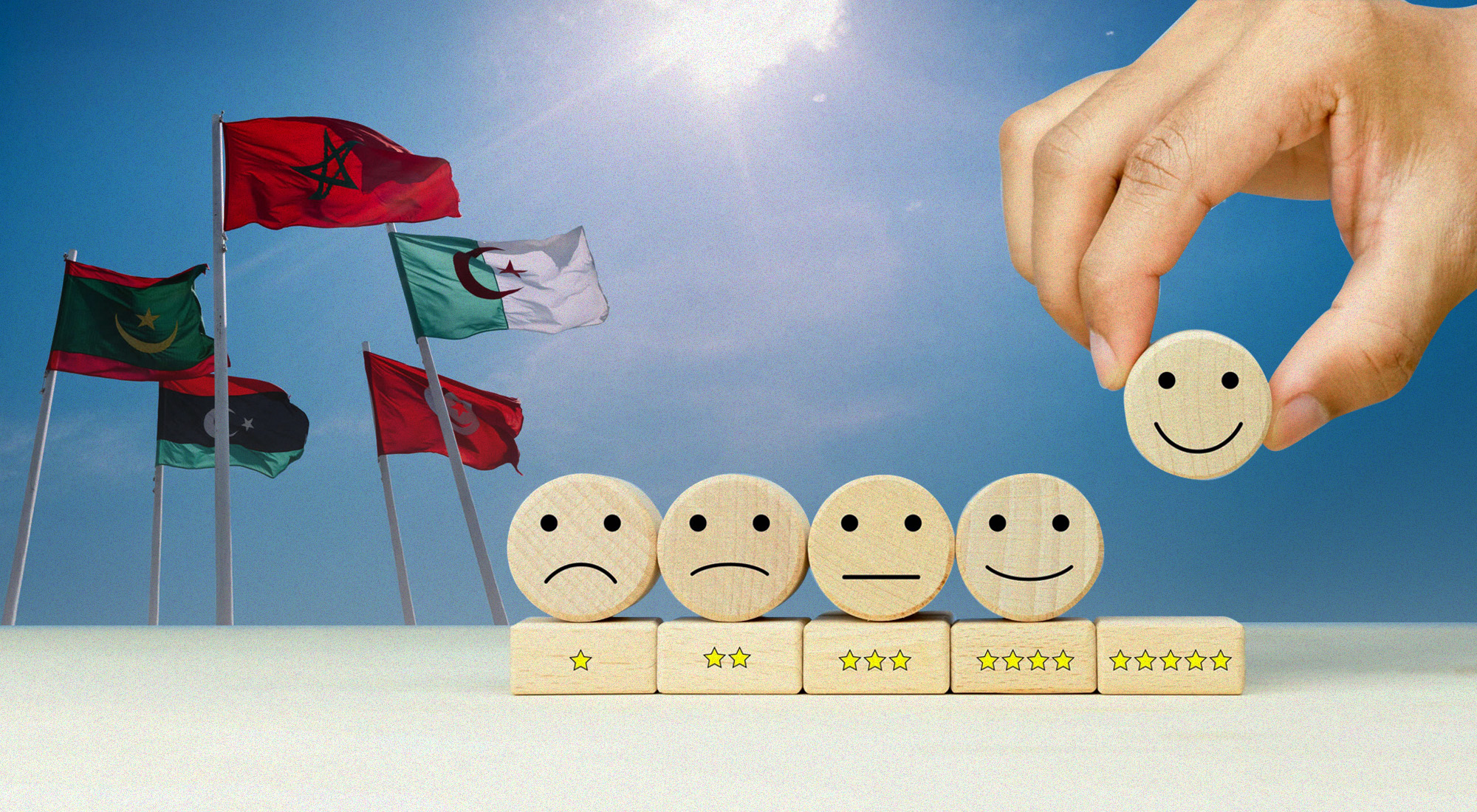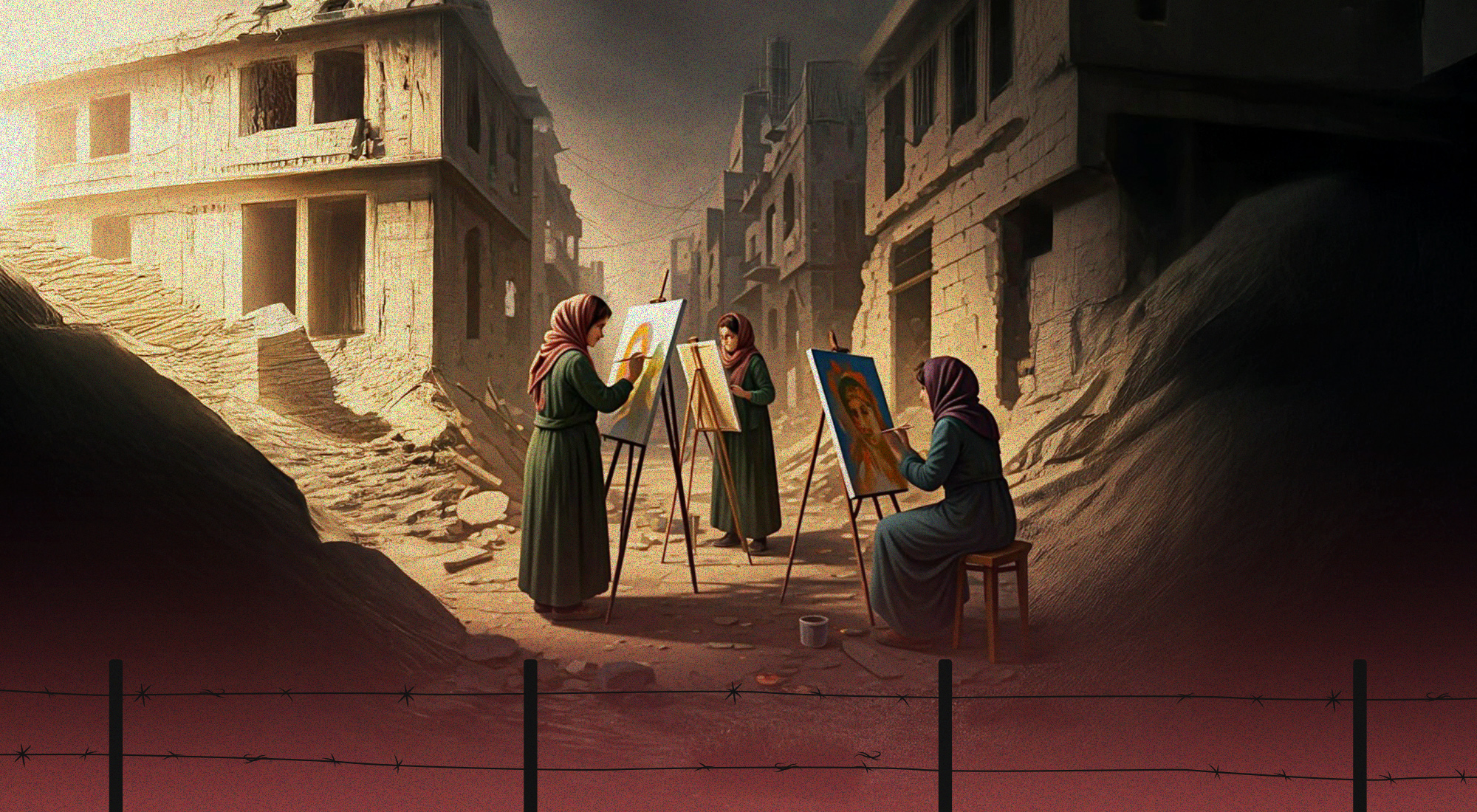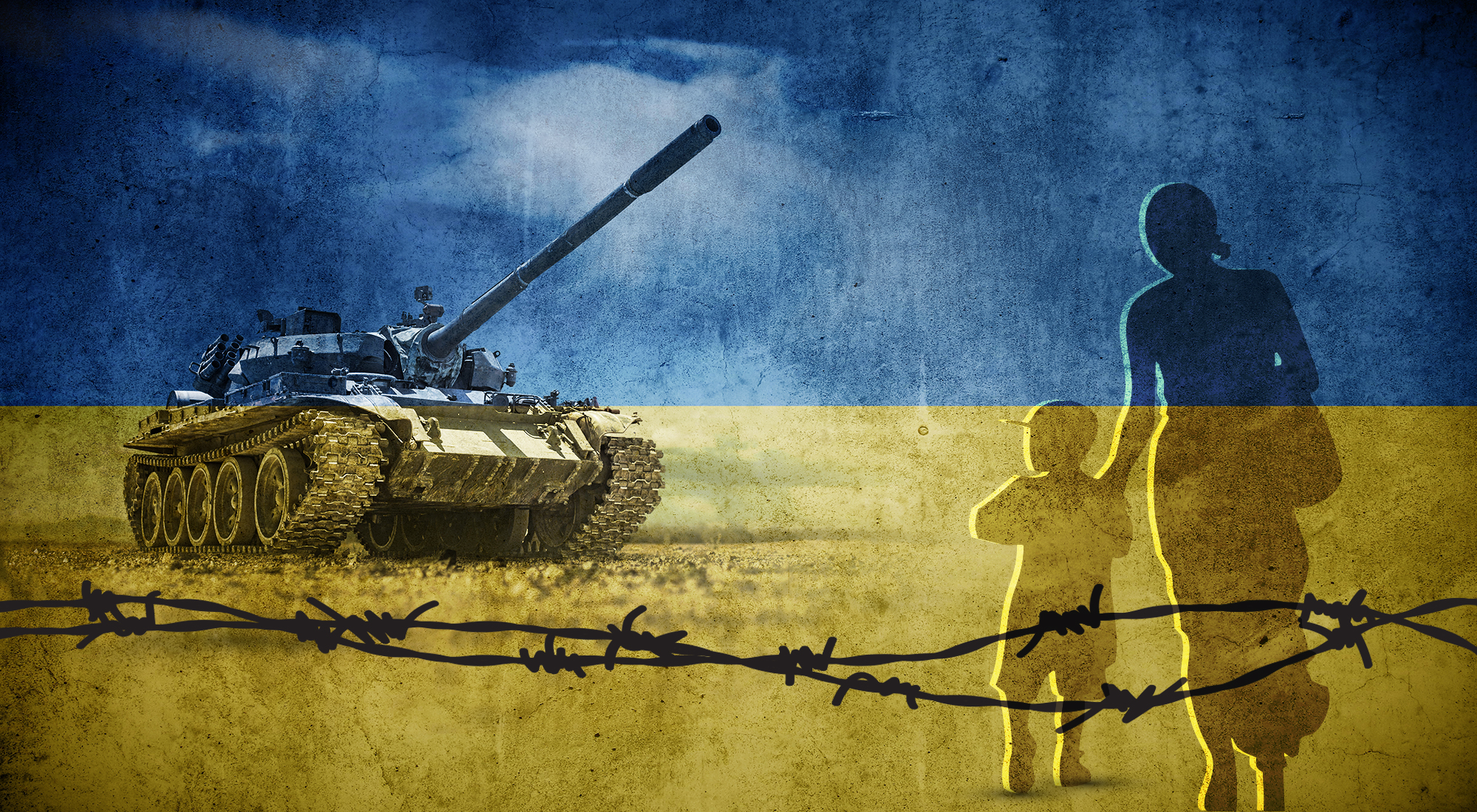Since it started in China late last year and spread across the world, the Coronavirus disease (Covid-19) has turned into a colossal crisis with negative consequences for most countries around the world. The virus was helped on its way by the ease and speed of the mechanisms of globalization that facilitate communication and transportation and mobility of people across borders.
Now a full-fledged pandemic, Covid-19 has become a serious test of the policies and capabilities of many countries, both developed and developing. Most countries have been remarkably inadequate in the management of the crisis and in their ability to limit its threat and consequences. They have also failed to contain its spread within their territories. While acknowledging these discrepancies, we can make three preliminary observations regarding the management of this global crisis so far:
First: Even for developed countries, the crisis came as a surprise in terms of their level of preparedness. This limited their response in addressing its consequences and minimizing its dangers, especially in the healthcare sector. Medical and health facilities (hospitals, health centers, medical and nursing staff, prevention and sterilization tools, etc.) seemed ill-prepared in many countries, making it difficult for them to deal with a large number of infections. This led to a major crisis and impeded the ability of these countries to support the victims thereby exacerbating human losses.
Second: This crisis has exposed the limited capacity of individual countries in tackling the virus using their resources, no matter how sophisticated and developed their healthcare sector may have been. It has also highlighted the need for greater international cooperation in countering global crises, particularly those related to epidemics. The collective response mechanism appeared limited when the crisis began and aggravated the risks posed by the rapid spread of the virus.
Third: The crisis has highlighted the importance of community awareness, discipline among the population and cooperation with governments. It has reaffirmed the importance of concerted efforts by governments and officials in the face of a serious public health crisis which requires limiting public mobility and social distancing to interrupt the spread of the virus. The ability to ensure this has perhaps been the difference between success and failure during this struggle. Despite measures taken by most countries to restrict the movement of the people – such as imposing travel bans, curfews, quarantine, health emergency, etc. – it is the people’s commitment to these measures that have been a crucial element in minimizing the damage.

UAE’s Covid-19 crisis management
The United Arab Emirates has set an example in how to manage a crisis of global proportions and the magnitude and gravity of Covid-19. The most important features of the UAE’s response can be identified as follows:
Proactive approach: This has not only been a characteristic of the UAE’s crisis management mechanism but has also been integral to its overall approach. The UAE’s political leadership is always keen to develop plans and strategies to achieve its development ambitions and is willing to demonstrate global leadership in all fields. In formulating these plans and strategies, the UAE takes into account all possible scenarios and how they can be dealt with in a manner that achieves the country’s legitimate aspirations. Concerning the Covid-19 crisis, the UAE adopted a serious approach. It started monitoring the situation across the globe, took immediate steps to scale up its response mechanism, and assessed international efforts and practices promptly to draw lessons. All these helped the country deal with the crisis wisely and adequately.
In its proactive approach, the UAE benefited from the efforts made over the years to develop several sectors and raise their level of readiness and efficiency in implementing the measures taken to confront the spread of the Covid-19 pandemic. These include, but are not limited to, the progress made in infrastructure, deployment of technology in e-government and smart government initiatives and the implementation of teleworking and distance-learning initiatives, which allowed the learning process to continue even as measures were taken to restrict people’s movement and prevent social interaction. The UAE also benefited from the advancements of its health infrastructure, which has been built over the years and can provide healthcare at a high degree of efficiency.
Comprehensive, multidimensional approach: The UAE has dealt with all the dimensions of this ongoing crisis that encompasses health, economic, political and international cooperation. It has also addressed the role of the media, especially about promoting community awareness about the gravity of the pandemic and the need to adhere to the measures imposed to prevent its spread.
A collaborative approach with the international community: Despite limited international cooperation in addressing this crisis in the beginning, and the major countries leveling accusations of responsibility at each other, the UAE, right from the start, demonstrated a high degree of cooperation and solidarity with the countries and people hit by the pandemic. This was exemplified by the UAE’s political leadership, represented by His Highness Sheikh Mohammed bin Zayed Al Nahyan, Crown Prince of Abu Dhabi and Deputy Supreme Commander of the UAE Armed Forces. He communicated with the world leaders and expressed the UAE’s solidarity with them. He also expressed the country’s readiness to provide urgent medical assistance to some countries.
Inward-looking participatory approach: A participatory approach involves building effective partnerships between officials and all segments of society. This includes the private sector, civil society and media institutions that can help counter the pandemic through effective awareness campaigns or by supporting government efforts to combat the spread of the disease. The UAE’s participatory approach necessitates mutual trust between the political leadership and officials, and between civil society and private institutions. This has always been one of the important factors ensuring the stability, progress, and prosperity of the UAE.
The UAE’s Covid-19 response mechanisms
The UAE has employed varied mechanisms and procedures in its comprehensive response to Covid-19 pandemic, which is evident in the success of the country in managing this crisis. The UAE’s success also demonstrates the flexibility of its institutions and the ability of its authorities to do effective and efficient crisis management, which operates at various levels:
Preventive level: Like many other countries, the UAE took a series of precautionary and preventive measures to interrupt the spread of the virus. This was critical considering the UAE hosts communities from all over the world. The country equipped hospitals and healthcare centers, provided them with all the necessary capabilities to help them deal with any potential infectious disease outbreak. These medical facilities were given the wherewithal to conduct the necessary medical tests for the largest number of residents to ensure they are Covid-19-free. The idea was to identify the causes of infections quickly so that necessary healthcare programs could be implemented.
Two major achievements stand out for the UAE in this regard. It joined the leading countries in conducting the maximum number of laboratory tests to separate those infected with the rest of the population. The second was the establishment of the world’s largest Covid-19 diagnostic laboratory outside China, which was built in 14 days. The unit provided an immediate solution to the evolving needs of the country’s Covid-19 tests. The country also initiated many actions such as the launch of a drive-through Covid-19 testing facility, provision for free screening of citizens and residents as well as provision for the latest medical equipment to help detect infections.
What was important was the element of time considering a speedy screening process of as many people as possible was critical in the UAE’s battle to curb the spread of the virus. The UAE leadership understood the need for a speedy response and ensured the same. Local media outlets quoted H.H. Sheikh Mohammed bin Zayed Al Nahyan telling officials: “We have all seen the difference between the nations which adopted early precautionary measures and those which haven’t. The former is more successful in containing the spread of the virus and addressing its repercussions, even though they’ve started only a few days or weeks earlier than the latter”. This awareness about the importance of the element of time helped the UAE manage the crisis effectively and successfully.
Economic response: Covid-19 has triggered a global economic crisis that may prompt many countries to offer economic rescue packages worth trillions of dollars. The UAE has taken many steps to address the economic fallout of the crisis, which coincided with a marked drop in world oil prices. The Central Bank of the UAE announced a comprehensive AED 100 billion economic support plan for those affected by the pandemic. The Abu Dhabi Executive Council also launched an economic stimulus package and expedited plans for the implementation of many important economic projects and initiatives as part of the Ghadan 21 accelerator program to reduce the cost of living and facilitate businesses in the Emirate. Dubai also announced an AED 1.5 billion economic stimulus package for the next three months to support companies and to enhance liquidity.
Government and private institutions in the UAE have managed to implement remote work initiatives, taking advantage of the strong technology infrastructure. In a way, this has ensured the continuity of work in most economic sectors despite measures taken to restrict people’s movement to prevent the spread of the virus. The UAE enjoys a strong, flexible, and diversified economy that helps it cope with crises and mitigate its negative ramifications. The UAE has in place ambitious plans and programs to enhance its pioneering development project to transition into a post-oil era in the decades to come.
Political level: Since the beginning of the crisis, the UAE has strived to strengthen cooperation with international and regional powers to coordinate efforts in dealing with this crisis. This was evident in the large number of calls made by H.H. Sheik Mohammed bin Zayed to many world leaders and international officials to explore ways to achieve international solidarity in fighting this pandemic and to provide assistance to the countries badly hit by the virus. The participation of H.H. Sheik Mohammed bin Zayed in the G-20 Summit, hosted by Saudi Arabia, and his important speech there, affirmed this approach.
Humanitarian efforts: The UAE has not only provided healthcare services to the UAE citizens and residents it has also taken the initiative to help individuals living outside its borders who are affected by this pandemic. It moved citizens belonging to numerous countries from the Chinese city of Wuhan and set up an integrated city for them at the Emirates Humanitarian City to provide them with healthcare services. The initiative has been the highlight of the country’s humanitarian approach to this crisis. These individuals were received on the UAE territory with personal letters of welcome from H.H. Sheik Mohammed bin Zayed himself. The UAE also provided emergency medical assistance to help the Yemenis cope with the threat of the virus and supported international efforts to help poor countries tackle the pandemic.
Security level: The issue of food security has become particularly important during this crisis considering borders have been closed and restrictions imposed on the movement of people and international trade. There have been growing concerns that this could disrupt food supply chains, especially for countries that depend heavily on food imports. Even before the Covid-19 crisis, the UAE attached a lot of importance to this issue. It established many national agencies and made strategies to ensure food security. Among these are the appointment of the first-of-its-kind Minister of State for Food Security, the launch of the National Food Security Strategy in November 2018, and the formation of the Emirates Council for Food Security in January 2020 to achieve the objectives of the National Food Security Strategy 2051.
During the Covid-19 crisis, the UAE leadership stressed the importance of ensuring food security to the extent that H.H. Sheikh Mohammed bin Zayed calling medicine and food supplies as a must in the UAE. He pledged to ensure their supplies under all circumstances. Toward the end of March 2020, the country also issued a federal law to regulate the strategic reserves of food in cases of crises, emergencies, and disasters and pledged to achieve food sustainability.
Raising community awareness: Since the beginning of the crisis, the UAE realized that countering Covid-19 cannot be achieved without fully ensuring social awareness and discipline and adherence to health rules and procedures. In this case, it meant preventing people from mixing socially. It used traditional and digital media tools to promote public awareness to stress the importance of adhering to health measures. The campaign proved to be successful as civil society, private institutions, and individuals, made crucial efforts to manage the crisis.
The Weqaya initiative:
On April 1, 2020, in cooperation with the Ministry of Health and Prevention, Abu Dhabi Health Department, Dubai Health Authority, and several national health authorities in the country, the National Emergency Crisis and Disasters Management Authority (NCEMA), launched the Weqaya platform. The website has been specifically designed to raise public health awareness regarding Covid-19 and to raise public awareness and consolidate corporate partnerships to fight the virus. The website provides information to the UAE public on preventative health and safety measures. It also features awareness videos showing the health and prevention best practices and offers medical advice to individuals and families.
This platform is an important initiative aimed mainly at strengthening the government’s efforts to curb the spread of Covid-19. This has proved to be important for various reasons:
The initiative embodies one of the main features that distinguish the UAE’s system of governance, which is based on institutional cooperation. The platform is based on cooperation between NCEMA and the Ministry of Health and Prevention, Abu Dhabi Health Department, Dubai Health Authority, and several other health authorities in the country. Such institutional cooperation enhances the effectiveness of government efforts in countering this pandemic. This is another form of teamwork characterizing government efforts, which underlines the UAE’s achievements.
This platform focuses, among other things, on enhancing awareness among community members, as it is the most important means for managing the Covid-19 pandemic. Experiences of many countries indicate that awareness of the seriousness of this pandemic and adherence to the guidelines of the authorities is critical in tackling this virus. China succeeded in containing this virus as a result of social awareness while the virus spread in many other countries due to a lack of awareness and indifference to instructions. Weqaya aims to introduce health and preventive measures, which community members should follow to avoid contracting this disease.
This initiative also addresses the rumors that start circulating in times of crisis. Weqaya is a reliable source of all information related to Covid-19 and hence dispels all rumors. The website allows members of the society to communicate with experts and the information on this platform is updated round the clock.
Such an initiative enhances the social and ethical responsibility of the various government departments and private institutions. It also enhances the role of individuals, citizens, and residents in contributing to the efforts. The Weqaya Field Team consists of volunteers from various nationalities who conduct public awareness campaigns among members of diverse communities.
Such an initiative enhances the concept of health security and adds another layer to the comprehensive national security dimensions of any country. The catastrophic fallout of the spread of Covid-19 has highlighted the importance of strong health and preventive systems with the ability to address health emergencies for all members of society. Through its management of the Covid-19 crisis, the UAE has demonstrated that it has exemplary experience in this regard. Providing world-class healthcare is one of the six pillars of the UAE’s National Agenda in line with its Vision 2021. The UAE is making continuous efforts to enhance the welfare and healthcare of all UAE citizens and residents. This is represented in the statement of H.H. Sheikh Mohammed bin Zayed Al Nahyan: “I’d like to reassure every citizen and resident of the UAE that our country is infinitely able to supply everyone with all the food and medicine they could ever need. We are well prepared to face any challenge that arises.”
This statement expresses a deep concern for health and food security in the UAE. The national virtual platform, Weqaya, embodies the spirit of initiative and innovation that distinguishes the overall performance of NCEMA in addressing Covid-19 pandemic crisis. NCEMA coordinated with the Ministry of Health and Prevention in designing a daily questionnaire to help community members assess their health and ensure they stay in good condition.
NCEMA has also launched the Business Continuity Readiness Guidelines for UAE organizations in the wake of the Covid-19 outbreak as part of its efforts to boost the nation’s preparedness for emergencies and following of the best international practices at all times. The guide demonstrates precautionary and preventive measures aimed at sustaining business continuity, preparing and enhancing preparedness and response and handling of the cases, while planning for business continuity during outbreaks.
Leadership, remote work strategy, staff distribution, the flexibility of procedures, monitoring and evaluation of suppliers, and supply chain readiness are some of the areas covered in the guide. The Safety and Prevention Department of the NCEMA also identifies all possible scenarios to contain Covid-19 to prevent transmission to others through the National Operations Center at NCEMA’s headquarters.
Conclusion:
Through the management of Covid-19, the UAE has been very effective in handling the aftermath of crises and emergencies. Domestically, the UAE has taken a series of important preventive and precautionary measures that have strengthened the health and food security of all members of the society and ensured that individuals and institutions take the responsibility to collectively confront this pandemic. The UAE has also played an active international role in strengthening efforts to confront this pandemic. This was done by assisting countries gravely affected by the virus, the provision of assistance to the WHO to perform its role in an optimal manner, or through its continuous coordination with major powers to ensure international cooperation. These efforts demonstrate the ethical responsibility the UAE always takes, which stems from its belief in international cooperation and solidarity to counter global crises that pose a threat to all humanity.








